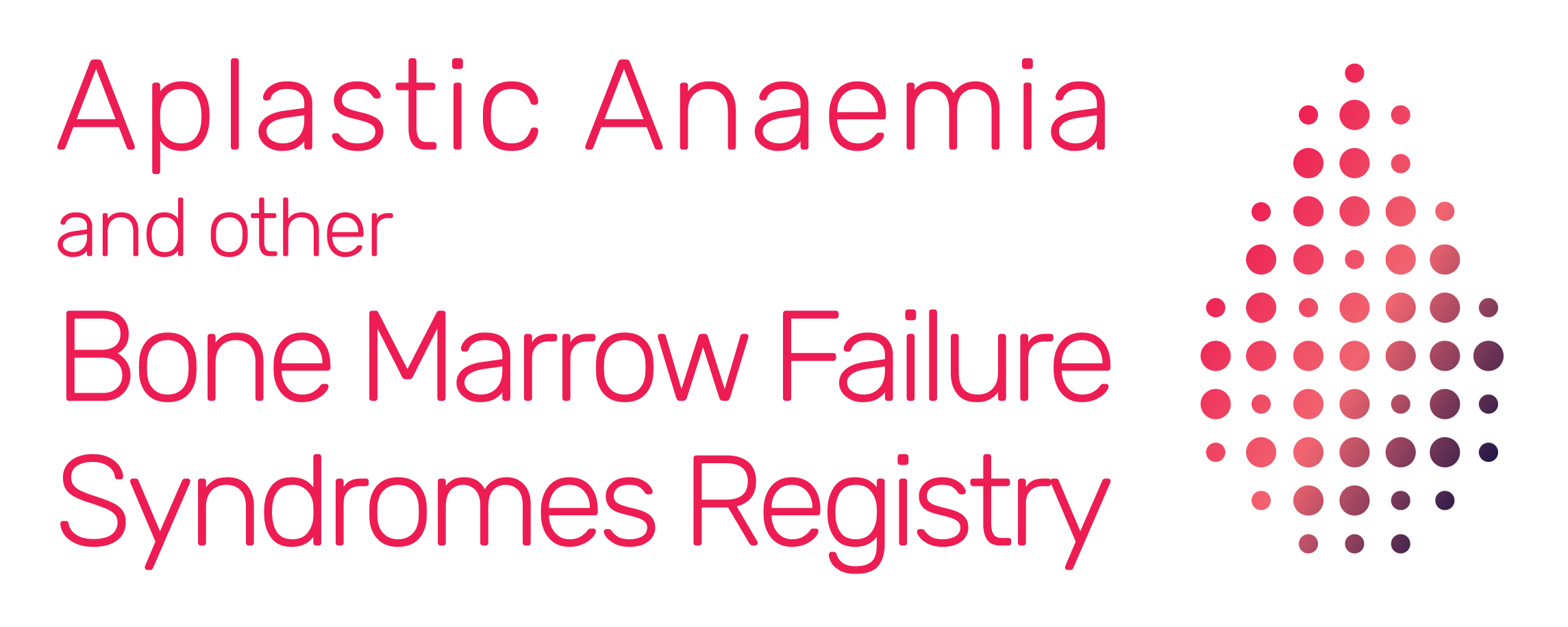Background
Aplastic anaemia (AA) is a rare but serious bone marrow failure syndrome (BMFS) with a high morbidity and mortality rate. AA is a diagnosis of exclusion and defined as pancytopenia with a hypocellular bone marrow, absence of an abnormal marrow infiltrate and no increase in reticulin. Patients commonly present with symptoms of anaemia, skin and mucosal bleeding or retinal haemorrhage. Infection is a less common presentation.
The term Aplastic Anaemia is usually understood to refer to the acquired disease, however there are also inherited BMFS (IBMFS) that can mimic the presentation of AA. Both AA and IBMFS are rare conditions but are increasingly recognised as distinct entities, especially now with greater access to molecular diagnostics.
Conducting clinical trials for these patient populations is hampered due to the rarity of the conditions, so registries play important roles in understanding the clinical journey and long-term outcomes of patients with AA and BMFS.
Aims
- Better define the incidence of acquired and inherited BMFS and Hereditary Predisposition to Haematological Malignancy (HPHM) in Australia
- Provide information on the range of therapeutic strategies being employed in the treatment of acquired and inherited BMFS and HPHM , including IST, HSCT and supportive care
- Document the specific genetic causes that underlie IBMF and HPHM in Australia
- Explore factors influencing clinical outcomes
- Investigate the relationship of PNH clones to progress of disease and response to therapy in AA
- Better define optimal management of BMFS and HPHM
- Collaborate with international researchers (i.e. registries) to collate de-identified patient data in the setting of rare diseases
- Inform and inspire future hypothesis-driven research in this area
Data Collection
Data will be collected through routine clinical visits and will not require the collection of any extra non-clinical information.
The following categories of data items will be collected:
- Health at diagnosis
- Demographic details (name, DOB, gender and genetic ethnicity)
- Family history
- Pregnancy history and fertility preservation
- Clinical presentation
- Laboratory and imaging data such as blood test, tissue results, radiological images and reports at initial presentation and diagnosis and at the times during follow-up described above. Genetic testing results for both somatic and inherited genetic changes will also be sought.
- Therapy decisions
- Outcomes including details of any relapse, complications (of therapy or condition), performance status indicators, disease progression and overall survival
Participating Sites
Victoria
Alfred Hospital
Austin Hospital
Box Hill Hospital
Geelong Hospital
Monash Medical Centre
Royal Children’s Hospital
Royal Melbourne Hospital
St Vincent’s Hospital, Melbourne
Western Hospital
New South Wales
Calvary Mater Newcastle
Children’s Hospital at Westmead
Concord Hospital
Gosford Hospital
Liverpool Hospital
Nepean Hospital
Prince of Wales Hospital
Royal North Shore Hospital
Royal Prince Alfred Hospital
St George Hospital
St Vincent’s Hospital, Sydney
Sydney Children’s Hospital
Westmead Hospital
Wollongong Hospital
Queensland
Queensland Children’s Hospital
Royal Brisbane and Women’s Hospital
Princess Alexandra Hospital
Townsville Hospital
Tasmania
Royal Hobart Hospital
Launceston General Hospital
Australian Capital Territory
Canberra Hospital
Western Australia
Fiona Stanley Hospital
Royal Perth Hospital
Perth Children’s Hospital
South Australia
Royal Adelaide Hospital
The Queen Elizabeth Hospital
Flinders Medical Centre
Women and Children’s Hospital
